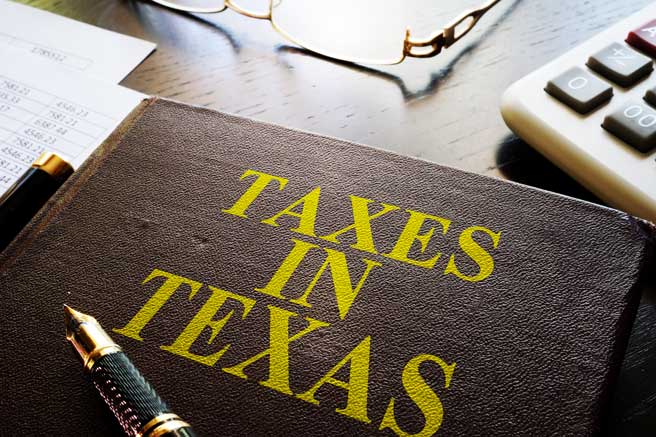
Thousands of companies are still working through their sales tax compliance, many are unsure of what this new liability of 'The Texas Franchise Tax' means. The Texas Comptroller defines the Texas franchise tax as:
“a privilege tax imposed on each taxable entity formed or organized in Texas or doing business in Texas.”
Legally, it’s defined as a fee for the right to conduct a substantial amount of business in Texas. In practice, the franchise tax functions like an additional fee on top of your sales tax.
It also shares a number of similarities with income tax.
The tax rate varies depending on the annual revenue of your business:
When you compare it to Texas’ 6.25% sales tax rate, tax rates of 0.575-1% seem pretty low. But in context, the total costs are pretty significant. 1% of $10 million is still $100k.
The important question surrounds who is responsible for paying for this. Unlike sales tax – where the consumer is responsible for the expense, franchise tax comes out of your pocket. This means the franchise tax could actually cost your business more money than sales tax. (Assuming you’re compliant.)
The Texas Franchise Tax applies to any company registered in the state, regardless of size or structure. Even if a business does not generate revenue or operate within the state, it must still pay the tax if it has been formed in Texas or is registered there. Companies that partner with out-of-state businesses may also be subject to the same rate.
You must deduct sales tax if your company does business in Texas, even through an affiliate. Additionally, companies relocated from another state and still hold a significant amount of property within Texas may also be liable for the tax.
The amount of franchise tax owed depends on the type of business, its gross receipts, and other factors such as the number of employees and the type of services provided. Most businesses' sales tax rate is 0.75% of their total margin from all sources (including sales, investment income, and other revenue). Companies with gross receipts below $10 million must pay a base rate only, while companies with receipts above that amount must also factor in additional taxes based on their total margins.
For example, companies with receipts between $10 million and $20 million must pay 0.575% of their total sales tax amount margins. In comparison, those with tickets between $20 million and $50 million must pay a rate of 0.331%. In addition to this base rate, some businesses may be required to pay the "no-tax-due" surcharge. This flat fee is assessed on companies registered to do business in Texas but doesn't generate taxable revenue. The "no-tax-due surcharge" applies to companies with gross receipts of less than $1 million annually.

The due date for the Texas Franchise Tax is typically May 15th, though it can be extended to June 15th if certain conditions are met. For businesses that owe the no-tax-due surcharge, the due date is April 15th. Companies registered after mid-February will be assessed a 5% late fee penalty on top of their total charge sales tax bill.
It's important to note that filing an extension will not waive any of the fees associated with late payments, so it's always best to pay on time or file for an extension as soon as possible. Additionally, businesses should consider the processing time required by the state when estimating their due date, as this could result in late payment penalties being assessed even if the industry is filing on time. Companies should plan and submit their taxes before the due date to avoid unnecessary last-minute hassles.
Certain businesses may qualify for exemptions from the Texas Franchise Tax. These include certain nonprofits, single-member LLCs (with no employees), businesses outside of Texas, and some government entities. Additionally, any company with annual gross receipts of less than $1,110,000 may be eligible for a Texas sales tax partial exemption.
It's important to note that these exemptions may not apply in all circumstances, so businesses should consult with their accountant or the Texas Comptroller of Public Accounts before filing for any exemptions. Additionally, even if granted an exemption, companies may still be liable for other taxes or fees, such as the no-tax-due surcharge mentioned earlier.
The Texas Franchise Tax carries significant penalties for noncompliance, including interest and fines. The amount of these combined sales tax rate charges will depend on the severity of the violation, but they can be quite substantial in some cases. Additionally, businesses may also face criminal prosecution if their failure to comply is found to have been intentional or willful.
To avoid this outcome, businesses should file their taxes correctly and on time each year. This includes understanding any applicable exemptions and taking advantage of them when possible. By doing so, businesses can ensure they comply with the Texas Franchise Tax regulations.
Complying with the Texas Franchise Tax can be a lot of work, but it is worth it in the long run. Here are the key benefits of maintaining compliance with the Texas Franchise Tax regulations:
Maintaining compliance with the Texas Franchise Tax can help businesses avoid costly fines and penalties, as long-term noncompliance could lead to serious legal issues. In addition to incurring steep penalties and interest charges, companies may even face criminal prosecution in some cases. For example, intentionally failing to file the correct sales tax rate or providing false information on a sales tax calculator can result in significant penalties and potentially even jail time. Therefore, businesses should strive to comply with the Texas Franchise Tax regulations each year to avoid these harsh consequences.
Compliance with the Texas Franchise Tax may help businesses reduce their tax liability. Companies can lower their taxes and maximize their financial savings by understanding applicable exemptions and taking advantage of them when possible. For example, businesses in certain enterprise zones may be eligible for sales taxes exemption on certain equipment or inventory.
Additionally, qualified enterprises that generate over $1 million in annual revenue may be able to receive a franchise tax credit for creating or expanding operations within Texas. These opportunities can help businesses lower their overall tax liability and maximize profits. Understanding all the available exemptions is key for companies looking to reduce their Texas Franchise Tax burden.
The Texas Comptroller of Public Accounts provides a wealth of resources for businesses seeking to comply with the Texas Franchise Tax. The agency offers detailed information on filing and payment procedures and useful calculators to help companies determine their tax liability. Businesses can also find helpful guidelines on filing requirements, exemptions, credits, and other important topics.
The Texas Comptroller of Public Accounts also offers a toll-free hotline for businesses to call and get answers to their franchise tax questions. Taking advantage of these resources can help ensure that companies comply with the Texas Franchise Tax regulations.
The Texas Franchise Tax rules and regulations are subject to frequent changes. Businesses should stay abreast of any new developments and adjust their compliance accordingly. The Comptroller of Public Accounts updates information regularly online, providing businesses with the latest news about tax policy in Texas. Staying informed is essential for companies looking to reduce their tax liability and optimize their profits in the state.

When navigating the complexities of the Texas Franchise Tax, seeking professional advice from a qualified tax adviser or accountant can be useful. With expertise in the field, a trusted professional can help businesses understand filing requirements and exemptions and calculate their tax liability. Professional advisors can also help businesses navigate the rules and regulations surrounding the Texas Franchise Tax, ensuring that they comply with state laws.
Texas offers qualified businesses several tax credits and exemptions that can help reduce their overall tax liability. For example, some companies may be eligible for an exemption from the franchise tax if they meet certain conditions related to gross receipts or total assets. Understanding and taking advantage of these provisions can significantly reduce the sales tax returns a business owes. Additionally, the state offers tax credits to businesses that use renewable energy sources or hire veterans, which can further reduce company taxes.
There is no denying that the Texas Franchise Tax can be a complex area to navigate, even for businesses with experience in tax compliance. Some of the common challenges faced by companies when dealing with the franchise tax include:
Due to the Texas Franchise Tax's complexity, many businesses outsource their tax filings and calculation to professional accounting firms. Before selecting a firm, several factors should be taken into consideration:
The legal organization of the entity, such as a corporation, limited liability company (LLC), or partnership, is an important factor when determining how much tax is owed under the Texas Franchise Tax. For example, due to structure and ownership rights differences, partnerships are subject to a different taxation rate than corporations and LLCs. Similarly, certain organizations, such as some non-profits or religious entities, may be exempt from the tax. Business owners need to understand the specific requirements and exemptions that apply to their organization to calculate their tax liability accurately.
The entity's gross receipts are another factor affecting the local tax rates. Businesses with larger total revenues are subject to higher rates and greater taxes due. This means businesses with high annual gross receipts must pay more taxes than those with lower ones.
Additionally, some types of revenue may be exempt from taxation, such as certain types of government funding or charitable contributions. As a result, business owners need to understand the specific requirements and exemptions that apply to their organization to calculate their tax liability accurately.
The total sales tax rate of the Texas Franchise Tax is based on a tiered system, meaning businesses with higher revenues may be subject to higher rates than those with lower payments. This means that companies need to calculate their taxable income accurately to determine the appropriate rate for their entity. Additionally, certain types of organizations may be exempt from the tax altogether.
The Texas Franchise Tax allows certain types of costs to be deducted from the total sales price, which can significantly reduce the local sales tax rate. Commonly deductible items include business purchases and investments, employee wages, and interest payments on business loans. Business owners need to understand what deductions are available for their organization and how to calculate any tax savings accurately.
Once a business has calculated its Texas Franchise Tax liability, the next step is to file the relevant returns. This can be done via an online portal or by mail, depending on the size and complexity of the organization's financials. It's important to remember that all filing deadlines must be met on time according to the tax jurisdictions to avoid potential penalties for late submissions. Additionally, businesses should keep all relevant documents and records on hand in case of an audit.
Business owners looking to reduce their Texas Franchise tax liability should understand how the rate is calculated and what deductions are available based on their organization. Business owners should also review their filing processes regularly to ensure that all paperwork is filed on time and any obligations are met promptly. Keeping accurate records of all financial transactions can help minimize the risk of an audit or other issues.
It's important to remember that Texas Franchise Tax regulations can be complex and change regularly. It is recommended that business owners consult with a professional tax advisor or accountant before collecting sales tax. A qualified tax professional can offer personalized advice on minimizing the organization's tax burden and ensuring all filings are completed accurately and on time. Alternatively, the Texas Comptroller's office and website hotline can provide useful resources for businesses to understand how much sales tax to pay.
Regardless of the size or type of business, all organizations must pay their taxable services promptly. Failure to complete returns or make payments by the designated deadlines may result in penalties, fines, and other consequences leading to an increase in the organization's tax burden. Business owners should note all deadlines and ensure their filings are completed correctly to avoid potential issues.
International businesses are subject to additional Texas Franchise Tax regulations and filing requirements. This includes multi-state businesses, companies with foreign affiliates, and organizations operating across state lines or in different countries. Such organizations need to be aware of any relevant laws when completing their filings. Consulting a qualified tax professional can help ensure all filings are accurate and compliant with the law.
Need help with franchise tax compliance? We’re here to help. Fill out our short What’s Next questionnaire to get in touch for a free 45-minute consultation.
We care about your data — privacy policy.